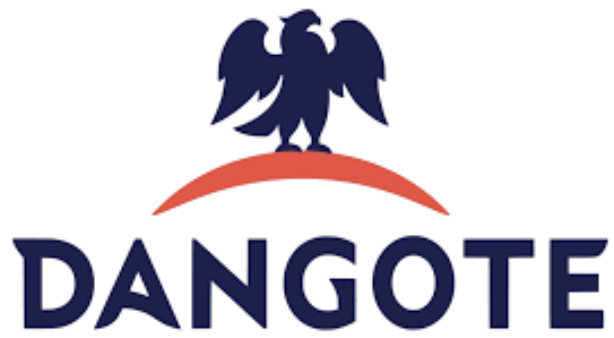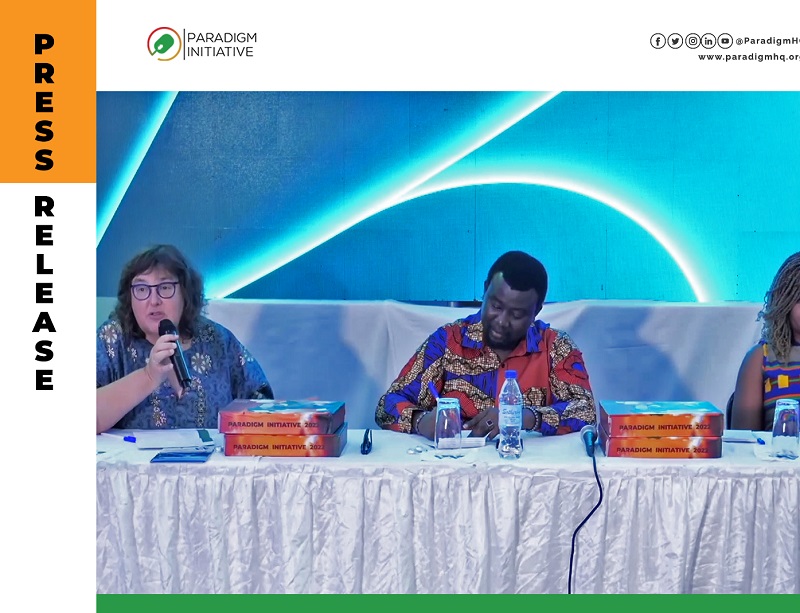General News
NCDMB Partners Dangote Refinery on Local Content Implementation

Nigerian Content Development and Monitoring Board (NCDMB) has praised the management of Dangote Petroleum Refinery and Petrochemical Free Trade Zone Enterprises (DPRP) over its adherence to the local content law in the execution of its projects and declared its intention to further partner with it for effective implementation of the Local Content policy in the country.
Mr. Akintunde Adelana, Director, Monitoring & Evaluation, NCDMB, who represented the board’s Executive Secretary, Engr. Simbi Wabote, made this disclosure weekend during the DPRP Nigerian Content Sensitization/Awareness Creation Programme, titled: “Let’s Walk the Nigerian Content Talk Together,” at Lekki Free Trade Zone, Lagos.
According to him, “the Dangote Refinery project is expected to close a major gap in the supply of petroleum products in the country. We consider this as a very important project and we are willing to partner with the company to ensure full implementation of the local content policy. We embarked on this journey with the company a long time ago and we are ready to partner with the Dangote Group.
“Part of what you see to today is part of our efforts to ensure that the company and its contractors comply with the local content policy and they have put in a lot of efforts in this regard.”
Speaking further, Wabote described the Local Content Act as the quantum of composite value added to, or created in the Nigerian economy by a systematic development of capacity and capabilities, through the deliberate utilization of Nigerian human, material resources and services in the Nigerian oil and gas industry.
He said the country recorded loses prior to the enactment of the local content policy, which he noted, came from jobs executed abroad by International Oil Companies (IOCs), operating in the country.
“The narrative then was that nothing can be done in-country. Plants and modules were fully fabricated offshore without any structure in place to achieve knowledge transfer. Before 2010, we had no active dry-dock facilities. The few we had were abandoned and left to rot away. Today, we have four active dry docking facilities in Port Harcourt, Onne, and Lagos,” he added.
He said the board’s mandate is to develop local capacity in key areas such as manufacturing and fabrication and promote indigenous ownership of assets and utilization of indigenous assets in oil and gas operations.
Wabote added that the board’s responsibility also include linking the oil and gas industry with other sectors of the economy, enhance multiplier effect of oil and gas investments in economy and develop pool of competitive supply chain rooted in oil bearing communities.
Reading riot acts to defaulters of the Nigerian Content Policy, Wabote said non-compliance with the law, will result to the suspension of projects/contracts, penalty of five per cent of project sum, withdrawal of NCDMB’s services, and project cancellation unrecoverable sunk cost.
Other penalties for non-compliance, according to the Executive Secretary, are escalation to other regulators to withdraw or suspend license, withdrawal of approvals or de-classification of contractor from pre-qualification list, application of the full weight of the law in accordance with Section 68, and publication of non-compliant operators in newspapers and professional gazettes.
Also speaking at the occasion, the Chief Operating Officer, DPRP, Mr. Giuseppe Surace, said the programme was organized to create awareness among the company’s contractors on the requirements of NCDMB, as part of moves to ensure the local content policy take roots in their day to day operation.
“The programme was organized to ensure that our contractors are well informed about the Nigerian Content Act and this is expected to assist them with the execution of not just the Dangote project, but other projects in their portfolio,” he added.
General News
How Plot to Topple Tinubu was Uncovered, Foiled

A covert intelligence operation coordinated by the Army Headquarters and the State Security Service (SSS) helped thwart a deadly plot to overthrow President Bola Tinubu’s government and assassinate key political figures, PREMIUM TIMES can authoritatively report.

Multiple senior administration insiders said the plot began to unravel in late September 2025 after an unnamed military officer with direct knowledge of the coup contacted the Olufemi Oluyede, then Chief of Army Staff.
The officer reportedly disclosed the scheme, saying he feared being implicated as an accessory to treason if he failed to alert authorities.
Our sources said around the same time, the SSS independently gathered intelligence indicating that some serving army officers were plotting to “destabilise the government and undermine Nigeria’s democracy.” An official familiar with the matter said Oluwatosin Ajayi, director-general of the SSS, personally briefed Mr Oluyede on the findings.
Faced with converging intelligence from multiple sources, the two security chiefs agreed to act swiftly. A wide-ranging but discreet joint operation was launched by the army and the SSS, with coordinated arrests planned across different parts of the country to neutralise the coup’s masterminds and other collaborators.
On 30 September 2025, as President Tinubu travelled to Imo State for an official visit, unaware of the plot to depose and possibly assassinate him, the joint operation went into effect. The sweep led to the arrest of the alleged principal architects of the coup, alongside other military and civilian suspects.
Emmanuel Undiandeye, chief of Defence Intelligence (CDI), and the then Chief of Defence Staff, General Christopher Musa, were subsequently briefed.
Mr Undiandeye was then requested to detain the suspects in the underground holding facility of the Defence Intelligence Agency.
Following the initial arrests, President Tinubu was formally informed of the foiled plot. A visibly shaken president immediately ordered the cancellation of the 1 October National Independence Day parade. He also approved the constitution of a special investigative panel, which later led to additional arrests. The investigative panel was led by General Undiandeye.
One of the detained soldiers later escaped custody but was rearrested by SSS operatives in Bauchi, a military insider said.
Meanwhile, a retired officer identified as General Adamu and a former governor, Timipre Sylva, accused of bankrolling the coup plotters, remained at large.
Tinubu later fired and retired General Musa, then Chief of Defence Staff, as well as the chiefs of the navy and air force. My Oluyede was appointed CDS and promoted to the rank of General. Weeks later, Mr Musa returned to government as Minister of Defence.
In a statement issued on 4 October, the Defence Headquarters said the arrested officers were being investigated for “indiscipline and breach of service regulations.”
It added that preliminary findings suggested the officers’ grievances were linked to “career stagnation and failure in promotion examinations.”
Despite mounting evidence and a series of detailed reports by PREMIUM TIMES and other media outlets, the military repeatedly denied that a coup plot existed.
In an 18 October statement, the Defence Headquarters described the probe involving the 16 arrested officers as a routine internal investigation aimed at maintaining discipline and professionalism within the armed forces.
However, on 26 January, the military publicly acknowledged for the first time that officers had indeed plotted to illegally overthrow President Tinubu’s administration. It announced that those indicted would be arraigned before a military judicial panel.
According to the Defence Headquarters, the investigation was “comprehensive” and conducted in line with established procedures, examining “all circumstances surrounding the conduct of the affected personnel.”
It said the findings revealed “a number of officers with allegations of ‘plotting to overthrow the government,” describing such conduct as ‘inconsistent with the ethics, values and professional standards required of members of the Armed Forces of Nigeria.”
“Accordingly, those with cases to answer will be formally arraigned before an appropriate military judicial panel to face trial in accordance with the Armed Forces Act and other applicable service regulations,” the statement added.
In an earlier report, PREMIUM TIMES quoted sources with direct knowledge of the investigation as identifying top officials allegedly marked for assassination. They include President Tinubu, Vice President Kashim Shettima, Senate President Godswill Akpabio, and Speaker of the House of Representatives, Tajudeen Abbas.
“There are other people targeted,” one source said. “But those are the key targets.”
The plotters also planned to detain senior military officers, including the service chiefs. “They did not want to kill them,” the source added.
According to the sources, the conspirators intended to assassinate the political leaders simultaneously. “They were waiting for a day when all of them would be in the country,” one official said. “Wherever they were, they would be assassinated.”
The sources said the plotters relied on informants within the Presidential Villa and around the officials slated for elimination.
“They have people inside the Villa who monitor the movements of these officials,” the source said. “The plan was to kill them at the same time and install a military government.” (PREMIUM TIMES)
General News
Moniepoint Marks 10 Years of Transforming Nigerian Businesses

Moniepoint Inc., Nigeria’s definitive platform for small businesses and Africa’s all-in-one financial ecosystem, today released its 2025 Year in Review, marking a decade of “financial happiness” and a transformative year of growth.

Moniepoint
Highlighting its role as the backbone of Nigeria’s entrepreneurial economy with over 6 million active businesses, the company revealed that its microfinance bank has now disbursed over ₦1 trillion in credit to thousands of businesses from provision stores and supermarkets to building materials sellers.
It is worthy to note that on average these businesses experienced growth by more than 36% after accessing credit, signposting its primacy as a transformational growth level and instrument of deepening shared prosperity.
Moniepoint uses alternative data points that include transaction histories, business patterns and payment behaviours in a bid to accommodate what traditional credit scoring misses to drive financial inclusion and access to credit.
The company’s 2025 performance reinforces its role as a critical financial infrastructure which not only supports the Nigerian economy, but also impacts everyday lives, creating immense value.
Founded in 2015 by Tosin Eniolorunda and Felix Ike, Moniepoint Inc (formerly known as TeamApt Inc) has established itself as the leading financial platform for Nigeria’s vast network of small and medium-sized businesses (SMEs), offering an integrated suite of services, including digital payments, business bank accounts, credit, foreign exchange (FX), and management tools.
During the year, as Nigeria’s largest merchant acquirer, now powering 8 out of every 10 in-person payments made across the country, Moniepoint MFB, the banking and payments subsidiary, processed ₦412 trillion in transaction value handling more than 14 billion transactions. This clearly suggests that Moniepoint is well-positioned to play a greater role in Nigeria’s steady march towards a trillion dollar economy by 2030.
“Our journey has been one of intentional evolution,” said Tosin Eniolorunda, Group CEO and Founder of Moniepoint Inc. “What started as a passion to solve overlooked problems has evolved into a platform powering the dreams of millions.
“As 83% of employment in Africa exists in the informal economy, our mission to create financial happiness is an operational mandate that guides our product development, our market expansion, and our capital allocation decisions.”
Beaming with enthusiasm, Eniolorunda continues, “Yet for all we have accomplished, we approach our second decade with the clarity that our work remains unfinished.
“As we enter this next chapter, we do so with strengthened conviction in our strategy, deepened partnerships with world-class institutional investors, and an organisation scaled to deliver on Africa’s entrepreneurial potential.
“The infrastructure we have built over the past decade provides the foundation. The journey is far from over, but our resolve has never been stronger. To our partners, our customers, and our team: thank you for a decade of impact. We are just getting started.”
In 2025, Moniepoint Inc. reached a series of critical inflexion points, highlighted by the successful completion of its Series C funding round, which raised over $200 million in equity financing from leading institutional investors, including Development Partners International, Google’s Africa Investment Fund, Visa, the International Finance Corporation, and Verod Capital.
The year also marked the launch of MonieWorld in the United Kingdom, extending Moniepoint’s platform to serve the African diaspora by strengthening key remittance corridors and laying the foundation for the delivery of comprehensive cross-border financial services.
Moniepoint MFB re-launched its savings product in a firm demonstration of the company’s commitment toward its’ oft stated mantra of providing financial happiness. Data reveals in terms of savings behavioral patterns, the majority of users choose to save on a daily basis, with focus across business operations (24%), rent (16.5%), and education (10%) representing top savings priorities.
The launch of Moniebook and the acquisition of a national Microfinance Bank license for Moniepoint MFB further expand the company’s regulated capabilities and product depth.
TeamApt Ltd, the switching and processing subsidiary of Moniepoint Inc., also achieved major regulatory and operational milestones in 2025 that have solidified its position in the global payments landscape. After a rigorous certification process, the company successfully secured licenses from Mastercard and Visa to act as a processor and acquirer for these global card schemes..
This strategic move allows TeamApt to support international card payments directly and offer these critical switching services to other businesses across the continent.
Monnify, the web payment gateway processed N25 trillion in the period under review, demonstrating remarkable resilience and industry confidence firmly positioning it for more business-to-business transactions.
Moniepoint’s impact extended beyond banking into critical social interventions even as the company partnered with the Federal Government to support the Rice Intervention Programme, reaching nearly 850,000 beneficiaries, and worked with the Kaduna State Government in grants disbursement to vulnerable citizens.
Through these initiatives, Moniepoint continues to build the infrastructure required to unlock Africa’s entrepreneurial potential, positioning itself as a trusted partner for the delivery of large-scale economic empowerment programmes.
As Moniepoint Inc. enters its second decade, its well chronicled decade-long evolution from a backend technology provider to a household name, directly complements the Nigerian government’s vision of a more inclusive, data-driven, and productive financial landscape. To read more about the 2025 Year in Review Report:, visit http://2025.moniepoint.com
General News
Paradigm Initiative Hails New Data Protection Laws as World Marks Privacy Week

As the world observes Data Privacy Week under the theme “Take Control of Your Data,” Paradigm Initiative (PIN) has commended countries that enacted or strengthened data protection laws in the past year to protect citizens’ privacy rights.

PIN
The week marks the January 28, 1981, signing of Convention 108, the first international treaty on data privacy and protection.
PIN spotlighted Djibouti, The Gambia, and Burundi for passing data protection laws in June, September 2025, and January 2026, respectively. It also recognised Botswana, whose law took effect in January 2025, and Algeria, which amended its legislation in July 2025 to mandate Data Protection Officers.
“We applaud these strides,” PIN said, urging data protection authorities across Africa to prioritise implementation and enforcement to uphold data subjects’ rights.
In Nigeria, PIN’s advocacy has yielded key wins. In 2024, it challenged unauthorised websites selling sensitive personal and financial data of Nigerians for as low as N100. Strategic litigation forced United Bank for Africa (UBA) PLC to pay N8 million to customer Miss Folashade Molehin for unlawfully opening a domiciliary account without her consent.
In 2025, the Federal High Court in Abuja ruled against Domino’s Pizza (operated by Eat’n’Go), awarding Chukwunweike Araka Akosa N3 million for unsolicited direct marketing via his phone. The court deemed it a violation of Section 37 of the 1999 Constitution and Sections 25 and 26 of the Nigeria Data Protection Act, 2023. The case originated via PIN’s Ripoti platform, which documents and redresses digital rights abuses across Africa, offering pro-bono legal aid.
Yet challenges persist. PIN warned that countries like the Democratic Republic of Congo, Mozambique, South Sudan, Sudan, Guinea-Bissau, Eritrea, and Western Sahara lack robust laws, exposing citizens to grave privacy risks.
It called on Liberia, Namibia, Sierra Leone, Mozambique, and Libya to urgently enact data protection frameworks.

 Telecom2 days ago
Telecom2 days agoPolice Bust ₦7.7bn Telecom Hack Gang, Seize 400 Laptops in Massive Fraud Swoop

 E-Financial3 days ago
E-Financial3 days agoPayPal Goes Live in Nigeria through Paga

 General News2 days ago
General News2 days agoNaira Smashes Through ₦1,400 Barrier in Official FX Rally

 Broadcasting3 days ago
Broadcasting3 days agoNITDA, NBC Explore Strategic Collaboration on Digital Transformation, Media Regulation

 General News2 days ago
General News2 days agoNCC Slaps ₦250,000 Fee on Trial Licences to Spur Telecom Innovation

 General News3 days ago
General News3 days agoFacebook Powers Connection, Creativity at African Creators Summit 2026

 E-Business3 days ago
E-Business3 days agoGold Hits Record $5,110/Ounce Amid Trump Tariff Threats, Geopolitical Fears

 Telecom3 days ago
Telecom3 days agoTikTok, Instagram Blamed in US Youth Suicide Lawsuit



























